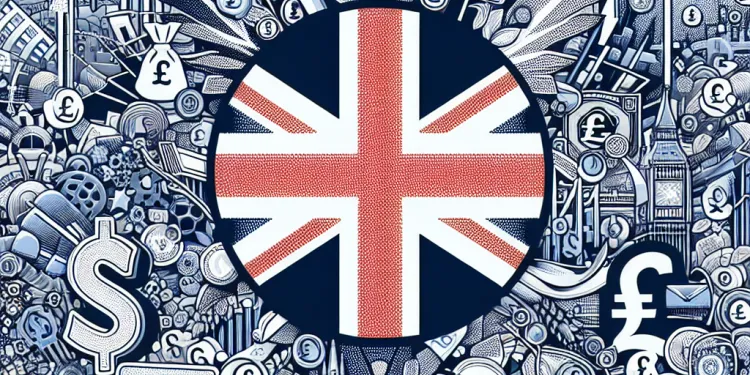
Find A Professional
More Items From Ergsy search
-

Would a wealth tax replace other taxes in the UK?
Relevance: 100%
-

What is the wealth tax in the UK?
Relevance: 92%
-

Could a wealth tax encourage tax avoidance?
Relevance: 92%
-

What is the Wealth Tax in the UK?
Relevance: 87%
-
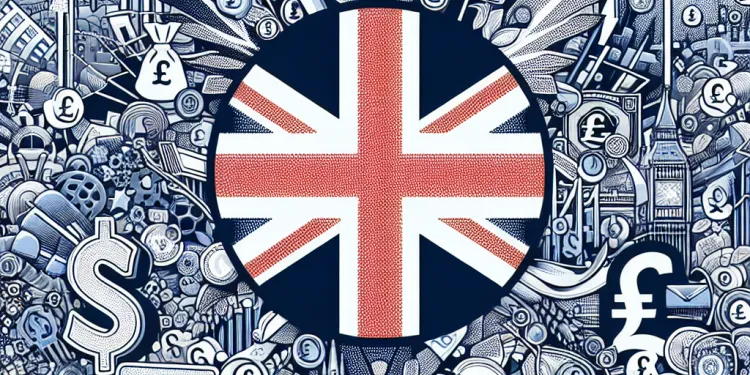
How do other countries implement a wealth tax?
Relevance: 80%
-

How might a wealth tax impact inequality in the UK?
Relevance: 79%
-

Has the UK ever had a wealth tax?
Relevance: 79%
-

Could a wealth tax affect economic growth in the UK?
Relevance: 79%
-

Has any political party in the UK supported a wealth tax?
Relevance: 79%
-

Why doesn't the UK have a wealth tax?
Relevance: 78%
-

Would a wealth tax apply to foreign assets?
Relevance: 72%
-

What arguments are made for a wealth tax in the UK?
Relevance: 70%
-
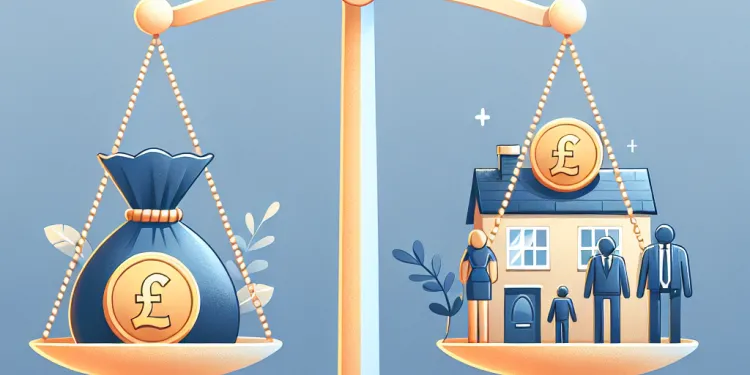
Do unpaid tax debts affect Inheritance Tax calculations?
Relevance: 66%
-

What are the administrative costs of a wealth tax?
Relevance: 65%
-

What are the challenges of implementing a wealth tax?
Relevance: 65%
-

How does council tax relate to wealth in the UK?
Relevance: 61%
-

Higher Income Tax - How to Claim Pension Tax Relief | Extra 20% Boost
Relevance: 59%
-

What Happens to Tax Debt After Death? (UK Laws)
Relevance: 55%
-

What is the role of an executor in handling tax debts?
Relevance: 54%
-

Are these grants taxable?
Relevance: 53%
-

Can the executor use the deceased's assets to pay tax debts?
Relevance: 50%
-

What happens to a deceased’s Income Tax if they were employed?
Relevance: 48%
-

What taxes need to be paid from the deceased’s estate?
Relevance: 46%
-

Who is responsible for paying the deceased’s tax debts?
Relevance: 46%
-

What should I do if I need help managing the tax affairs of the deceased?
Relevance: 44%
-

Is it necessary to complete a final tax return for the deceased?
Relevance: 44%
-

Do I need to report the Winter Fuel Payment on my tax return?
Relevance: 38%
-

What taxes in the UK target wealth?
Relevance: 35%
-
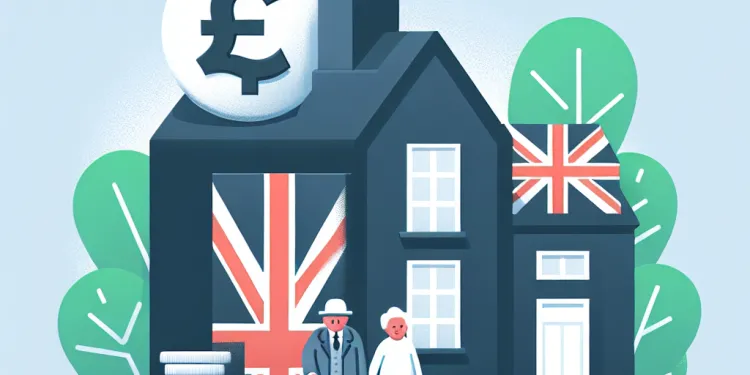
What is inheritance tax in the UK?
Relevance: 35%
-

Do I need to pay tax on the £500 cost of living payment?
Relevance: 34%
-
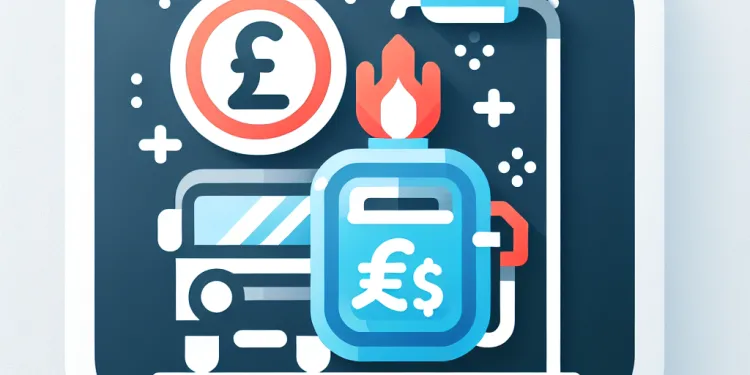
Is the Winter Fuel Payment taxable?
Relevance: 34%
-
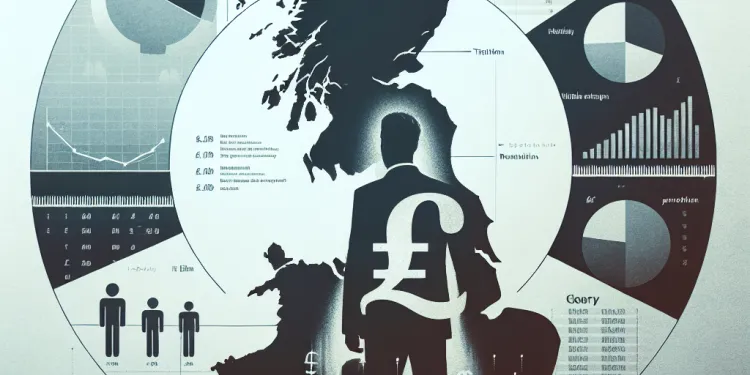
Do public opinion polls support a wealth tax in the UK?
Relevance: 29%
-

What Happens To Investments and Pensions | Moving Abroad | Leaving the UK
Relevance: 25%
-

What if the estate does not have enough assets to pay all tax debts?
Relevance: 25%
-

How do I notify HMRC of someone’s death?
Relevance: 25%
-

How is Inheritance Tax (IHT) dealt with after death?
Relevance: 22%
-

Do I need to inform HMRC about the death?
Relevance: 20%
-

What Is An ISA UK (Should I have an ISA & Different Types Of ISAs)
Relevance: 20%
-

Boost your Take Home Pay | Salary Sacrifice Explained UK
Relevance: 19%
-
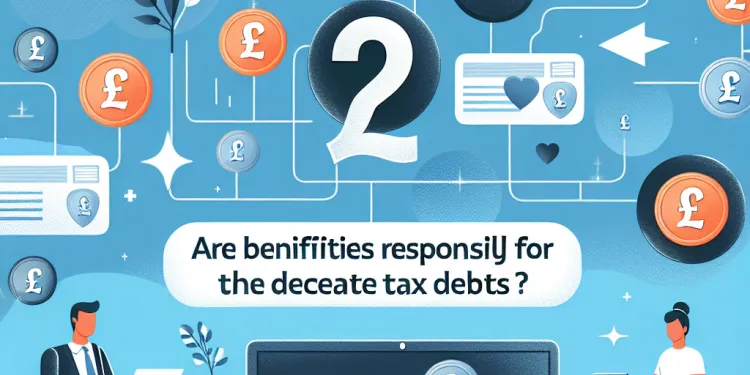
Are beneficiaries responsible for the deceased's tax debts?
Relevance: 18%
Introduction to Wealth Tax Implementation
A wealth tax is a levy on the total value of personal assets, including housing, cash, investment funds, and more. Different countries adopt varying approaches to design and implement wealth taxes, considering unique economic, cultural, and political contexts. Understanding how other countries implement wealth taxes can provide insights for the UK in its exploration of similar fiscal policies.
Wealth Tax Implementation in France
France is well-known for its wealth tax, previously called the Impôt de solidarité sur la fortune (ISF), which was introduced in 1989. The tax was payable by households with assets exceeding a certain threshold, with rates on a sliding scale based on asset values. In 2018, the French government replaced the ISF with the Impôt sur la fortune immobilière (IFI), narrowing its scope to real estate assets only. This reform aimed to stimulate economic growth by encouraging wealthy individuals to invest in non-property assets. The current structure features several tax bands, reflecting the market value of taxable real estate.
Wealth Tax in Switzerland
Switzerland operates a wealth tax system at the cantonal level, meaning rates can vary significantly between different regions. The tax applies to residents' net assets, including worldwide property holdings, and is typically progressive, with rates ranging from 0.1% to 1%. Swiss residents must declare global assets, although certain personal belongings are exempt. Despite moderate tax rates, Switzerland's wealth tax is a substantial revenue source due to the country's prosperous economy and high number of affluent residents.
Wealth Tax in Spain
Spain imposes a wealth tax, reinstated in 2011, which applies to individuals with assets above a specified limit. This tax is administered regionally, allowing autonomous communities to establish their own minimum thresholds and levy rates. Consequently, the wealth tax burden differs across regions. The Spanish system does include allowances, such as a personal allowance on primary homes and a general deductible allowance. The wealth tax acts as a tool for regional revenue generation and redistribution of resources.
Wealth Tax Systems in Nordic Countries
Several Nordic countries, including Norway, Finland, and Iceland, have implemented or previously utilized wealth taxes. As of recent years, Norway is among the few that retains a wealth tax, targeting high-net-worth individuals with a rate that increases progressively above a base exemption limit. Finland and Denmark abolished their wealth taxes due to concerns over economic growth implications and difficulties in administering the tax efficiently. Nevertheless, these countries maintain high levels of public services funded through other forms of taxation.
Conclusion
Wealth taxes in countries like France, Switzerland, Spain, and Norway illustrate diverse methods of application, each tailored to fit national priorities and economic conditions. While a wealth tax can be a means to narrow wealth inequality and increase public revenues, its implementation requires careful consideration of its economic impact and administrative practicality. Exploring these international models can offer valuable lessons for the UK in shaping equitable and effective tax policies.
Introduction to Wealth Tax Implementation
A wealth tax is money that people pay the government based on what they own. This means homes, money, and investments. Different countries have different ways to make these taxes work. Seeing how other countries do it can help the UK learn when thinking about similar tax ideas.
Wealth Tax Implementation in France
France has a well-known wealth tax. It used to be called "ISF," which started in 1989. Families with a lot of money had to pay this tax. The more they owned, the more they paid. In 2018, France changed it to focus only on real estate, which means property like houses and land. This was to encourage people to invest in other things besides property. The tax has different levels based on how much the real estate is worth.
Wealth Tax in Switzerland
In Switzerland, the wealth tax depends on where you live, since different areas have different rates. This tax is on what people own, like houses and other properties around the world, but some personal items are not taxed. People in Switzerland must tell the government about all their big belongings. Even though the tax rates are low, they raise a lot of money because Switzerland has many rich people.
Wealth Tax in Spain
Spain started its wealth tax again in 2011. It's for people who have more than a certain amount. Each region can decide how much and who pays. This means taxes can be different in different places. Spain has rules that say some things don't get taxed, like a main home up to a point. Wealth tax helps raise money for each part of Spain and helps share money more fairly.
Wealth Tax Systems in Nordic Countries
Some Nordic countries, like Norway, Finland, and Iceland, have had wealth taxes. Norway still does. It taxes people with a lot of money, and the more they have, the more they pay. Finland and Denmark don't have wealth taxes anymore because they were hard to manage and they worried about growth. But these countries still provide lots of public services using other types of taxes.
Conclusion
Countries like France, Switzerland, Spain, and Norway show different ways to have a wealth tax. Each country makes their tax fit their needs. Wealth tax can help reduce the gap between the rich and poor and raise money for public needs. But it is important to think about how it affects the economy and how easy it is to manage. Learning from other countries can help the UK make fair and useful tax rules.
Frequently Asked Questions
What is a wealth tax?
A wealth tax is a tax levied on an individual's total net worth or the market value of assets owned, including real estate, stocks, and other assets.
Which countries currently implement a wealth tax?
As of recent years, countries like Norway, Spain, and Switzerland implement some form of a wealth tax.
How does Norway implement a wealth tax?
In Norway, the wealth tax is levied on net assets above a certain threshold, with rates varying based on the value of net assets.
What is the wealth tax rate in Spain?
Spain has a progressive wealth tax with rates ranging from 0.2% to 3.5%, depending on the individual's asset value.
How does Switzerland implement its wealth tax?
Switzerland's wealth tax is imposed at the cantonal level, with rates varying by canton and typically being less than 1% of total net worth.
Why do some countries choose to implement a wealth tax?
Countries implement wealth taxes to reduce inequality, increase government revenue, and target the wealthiest individuals' accumulated net worth.
Are there any exemptions in wealth tax implementations?
Yes, many countries with a wealth tax provide exemptions or minimum thresholds to exclude lower and middle-income households from paying the tax.
What are the administrative challenges of implementing a wealth tax?
Challenges include accurately assessing all assets' value, potential capital flight, and the complexity of cross-border asset valuation.
How does a wealth tax differ from an income tax?
A wealth tax is based on net assets, while an income tax is levied on the earnings generated during a specific period, such as a year.
Has any country repealed its wealth tax? If so, why?
Yes, several countries like France have repealed their wealth tax due to difficulties in enforcement, perceived economic disadvantages, or administrative costs.
How do wealth taxes impact economic behavior?
They can lead to changes in savings and investment behavior, capital migration, or other forms of tax planning to minimize tax liabilities.
Do wealth taxes effectively reduce inequality?
The effectiveness varies, but taxing wealth can contribute to reducing inequality by redistributing wealth from the richest individuals to fund public services.
What are the typical asset types subject to wealth tax?
Assets such as real estate, cash, bank deposits, securities, and business assets are typically subject to a wealth tax.
Can wealth taxes encourage capital flight?
Yes, high-net-worth individuals might move their assets or change residency to avoid high taxes, leading to capital flight.
What lessons can be learned from countries that have implemented a wealth tax?
Successful implementation requires thorough asset assessments, setting effective rate thresholds, and careful consideration of economic impacts and capital mobility.
How can governments prevent tax avoidance in wealth tax systems?
Governments can mitigate avoidance through international cooperation, stricter reporting requirements, and closing loopholes.
What role do wealth taxes play in funding government budgets?
Though not the primary source, wealth taxes can supplement government revenue, especially from the wealthiest citizens.
What is the public perception of wealth taxes?
Public perception varies; some see it as a tool for fairness and justice, while others view it as a disincentive for wealth accumulation.
Do wealth taxes have any impact on entrepreneurship?
Critics argue that wealth taxes may discourage entrepreneurship by reducing the incentives to accumulate and invest wealth.
How do enforcement mechanisms work in countries with a wealth tax?
Mechanisms include mandatory reporting, audits, penalties for non-compliance, and collaboration with financial institutions for asset transparency.
What is a wealth tax?
A wealth tax is when rich people give some of their money to the government. This money can help everyone by paying for things like schools and hospitals.
If you want more help to read, you can use tools like audiobooks or ask someone to read with you. Drawing pictures can also help you understand better.
A wealth tax is money you pay to the government. It is based on how much you own. This can include your house, stocks, and other things.
What countries have a wealth tax right now?
A wealth tax is when people pay money on things they own, like houses or money. Some countries have a wealth tax. Let's find out which ones do.
If you need help reading, ask a friend or use a reading app to help you.
In the last few years, places like Norway, Spain, and Switzerland have a tax for people who have a lot of money.
How does Norway make people pay a wealth tax?
Norway collects money from people who own a lot of things. This is called a 'wealth tax'.
If you own a house, money, or other valuable things, you might have to pay this tax. The tax helps Norway pay for schools, roads, and hospitals.
Here are some tips to understand better:
- Use pictures or diagrams to see how taxes work.
- Ask someone to explain it to you in small steps.
- You can write down questions and find answers online or in books.
In Norway, if you have a lot of money, you have to pay a special tax called a "wealth tax." This tax is only for people who have more than a certain amount of money. The more money you have, the higher the tax you pay.
How much is the wealth tax in Spain?
- The wealth tax is money some people must pay on what they own. - In Spain, some people pay this tax if they have a lot of money or things that are worth a lot. - The amount they pay can be different. **Tip:** If you find this hard, you can ask someone to explain it to you or use a website that reads things out loud.In Spain, people pay a money tax. This tax is called the "wealth tax." It goes from a small amount, like 0.2%, up to a bigger amount, like 3.5%. The amount you pay depends on how much your things are worth.
How Does Switzerland Use Its Wealth Tax?
Switzerland has a special way of using taxes on people's money and valuable things. This is called a wealth tax.
If you have a lot of money or valuable things like houses or cars, you might pay a little bit of that in taxes in Switzerland.
Every person who lives in Switzerland might do this tax in a different way because it depends on where they live.
To know more and get help, people can use tools like simple charts or ask someone who knows about taxes to explain.
In Switzerland, different areas called cantons make people pay a tax if they have a lot of money. This tax is called a wealth tax. The amount you pay is different in each canton, but it is usually less than 1% of all the money and things you own.
Why do some countries use a wealth tax?
Some countries have a wealth tax to help make sure everyone helps pay for things like schools and roads. It is a way to collect money so everyone can have nice things like parks and hospitals.
Here are some tools to help read better:
- Use a ruler or your finger to keep your place when reading.
- Ask someone to read with you or read out loud to help understand better.
- Try reading one sentence at a time and think about what it means.
Countries use a special tax on wealth for three main reasons. First, to make everyone more equal. Second, to get more money for the government. Third, to make sure the richest people pay their fair share.
Do some people need to pay less wealth tax?
Some people might not have to pay as much wealth tax.
Things like owning a family house can sometimes help lower the tax. Look for tools that help you understand taxes better, like easy-to-read guides or talking to a tax helper.
Yes, many countries have a wealth tax. This tax sometimes lets people with less money not pay. People with low or middle income can be excused from this tax.
What problems might come up when starting a wealth tax?
Starting a wealth tax can be tricky. Here are some problems that might happen:
- Counting Wealth: It's hard to know how much everyone owns. People have money, houses, and other things.
- Finding Everyone: Make sure everyone who needs to pay is found.
- Rules: There need to be clear and fair rules about the tax.
- Collecting the Tax: Make sure the tax is collected the right way.
Here is how you can find more help:
- Ask someone to explain the hard parts.
- Use pictures or videos to see how it works.
- Break the information into small bits to make it easier to understand.
There are some problems. It's hard to know how much everything is worth. People might take their money to other countries. It's also tricky to figure out how much things are worth in other places.
What is the difference between a wealth tax and an income tax?
A wealth tax is money paid on things you own, like houses or cars. An income tax is money paid on the money you earn, like your salary from a job.
To understand better, you can:
- Use pictures to show wealth tax and income tax.
- Ask a friend or adult to explain.
- Watch a video about taxes.
A wealth tax is a tax on what you own. An income tax is a tax on the money you earn each year.
Has a country stopped using a wealth tax? Why did they do it?
Yes, some countries, like France, have stopped using their wealth tax. They did this because it was hard to manage, cost a lot to run, and wasn't good for the economy.
What happens when people pay taxes on their money?
Taxes can make people change how they save and invest their money. Sometimes, people move their money to different places or use special ways to pay less tax.
Do taxes on rich people's money help make things more fair for everyone?
Making rich people pay more taxes can help. It takes money from the rich to help everyone. This money can be used for schools, hospitals, and other things that help people.
What things are usually taxed when you have a lot of money?
Wealth tax is money you pay to the government on things you own that are worth a lot. This can include buildings or land, money you have in the bank, stocks, or things you own for your business.
Can Taxes Make Rich People Move Their Money Away?
Yes, rich people might move their money or change where they live to avoid paying high taxes. This could lead to them taking their money out of the country.
Tools to Help:
- Read with a friend or family member.
- Use a dictionary to look up hard words.
- Break down sentences to understand them better.
What can we learn from countries with a wealth tax?
Let's look at countries that have taxes on wealth. What have they learned?
We can learn from them to see what works well and what doesn't.
To help understand this, you can:
- Use pictures or videos about wealth tax.
- Talk to someone who understands taxes.
- Find simple stories or examples online.
To make a plan work well, you need to:
- Check what you have carefully.
- Set good price limits.
- Think carefully about how it affects money and moving resources.
Here are some tools that can help:
- Use picture charts to understand better.
- Ask someone for help if needed.
- Work with a buddy to talk things over.
How can governments stop people from avoiding paying wealth taxes?
Here are some ways to help:
- Make clear rules: Have easy-to-understand rules so everyone knows what they need to pay.
- Use technology: Use computers and the internet to check that people are paying their taxes the right way.
- Help from experts: Get help from tax experts who know a lot about taxes.
- Talk to other countries: Work with other countries to make sure everyone is paying their fair share.
These steps can help governments make sure people pay their taxes. Tools like picture guides or audio versions can also help people understand better.
Governments can work together with other countries, make rules for telling more about money, and fix tricky parts in laws to stop people from avoiding taxes.
How do wealth taxes help pay for government spending?
Wealth taxes are a type of tax on money and things people own. This money helps the government pay for schools, roads, and hospitals. Wealth taxes make sure that people with more money help a bit more with these costs.
If you want help with understanding, try using pictures or videos. Discuss with friends or family to make it clearer.
Wealth taxes are not the main way the government gets money, but they can help. These taxes usually come from the richest people.
What do people think about wealth taxes?
Let's talk about what wealth taxes are. Wealth taxes are when people pay money to the government based on how much money or valuable things they have.
Now, let's see what different people think:
- Some people like wealth taxes: They think it's a good way for rich people to help pay for schools, roads, and hospitals.
- Some people don't like wealth taxes: They think it's not fair because people have already paid taxes when they earn money.
If you want help to understand more, you can:
- Ask someone to explain it to you in simple words.
- Use an app like a dictionary to check any difficult words.
- Watch a video for kids about money and taxes.
People think about this in different ways. Some people think it helps make things fair and just. Other people think it stops people from wanting to earn more money.
If you find it hard to read, you can use tools like text-to-speech to have this read out loud or use a dictionary to help with difficult words.
Do Taxes on Money Affect Starting a Business?
When the government takes money from rich people, does it change if they want to start new businesses? Let's talk about how this can happen.
If you want to understand this better, here are some things you can do:
- Use simple apps that explain things with pictures.
- Ask someone to read and explain it to you.
- Try reading with a friend or family member.
Some people think that a wealth tax might make people not want to start their own businesses. They say it can make people less excited about saving money and using it to grow their money.
How does a wealth tax work in different countries?
Here is how it works:
- A wealth tax is money people pay to the government if they have a lot of money or valuable things.
- The government needs to make sure everyone pays this tax. This is called 'enforcement'.
- Enforcement means checking if people pay the right amount and on time.
- If someone does not pay, the government might send reminders, or even penalties like fines.
If you want to learn more, you can:
- Ask a trusted person for help.
- Use simple online tools to understand more about taxes.
- Look at pictures or videos that explain wealth tax.
There are different ways to keep track of money. These include:
- Making rules that mean you have to tell someone when things happen.
- Checking to make sure everything is right.
- Giving punishments if people don't follow the rules.
- Working together with banks to make sure we can see where all the money is.
Useful Links
- Ergsy carfully checks the information in the videos we provide here.
- Videos shown by Youtube after a video has completed, have NOT been reviewed by ERGSY.
- To view, click the arrow in centre of video.
- Most of the videos you find here will have subtitles and/or closed captions available.
- You may need to turn these on, and choose your preferred language.
- Go to the video you'd like to watch.
- If closed captions (CC) are available, settings will be visible on the bottom right of the video player.
- To turn on Captions, click settings .
- To turn off Captions, click settings again.
More Items From Ergsy search
-

Would a wealth tax replace other taxes in the UK?
Relevance: 100%
-

What is the wealth tax in the UK?
Relevance: 92%
-

Could a wealth tax encourage tax avoidance?
Relevance: 92%
-

What is the Wealth Tax in the UK?
Relevance: 87%
-

How do other countries implement a wealth tax?
Relevance: 80%
-

How might a wealth tax impact inequality in the UK?
Relevance: 79%
-

Has the UK ever had a wealth tax?
Relevance: 79%
-

Could a wealth tax affect economic growth in the UK?
Relevance: 79%
-

Has any political party in the UK supported a wealth tax?
Relevance: 79%
-

Why doesn't the UK have a wealth tax?
Relevance: 78%
-

Would a wealth tax apply to foreign assets?
Relevance: 72%
-

What arguments are made for a wealth tax in the UK?
Relevance: 70%
-

Do unpaid tax debts affect Inheritance Tax calculations?
Relevance: 66%
-

What are the administrative costs of a wealth tax?
Relevance: 65%
-

What are the challenges of implementing a wealth tax?
Relevance: 65%
-

How does council tax relate to wealth in the UK?
Relevance: 61%
-

Higher Income Tax - How to Claim Pension Tax Relief | Extra 20% Boost
Relevance: 59%
-

What Happens to Tax Debt After Death? (UK Laws)
Relevance: 55%
-

What is the role of an executor in handling tax debts?
Relevance: 54%
-

Are these grants taxable?
Relevance: 53%
-

Can the executor use the deceased's assets to pay tax debts?
Relevance: 50%
-

What happens to a deceased’s Income Tax if they were employed?
Relevance: 48%
-

What taxes need to be paid from the deceased’s estate?
Relevance: 46%
-

Who is responsible for paying the deceased’s tax debts?
Relevance: 46%
-

What should I do if I need help managing the tax affairs of the deceased?
Relevance: 44%
-

Is it necessary to complete a final tax return for the deceased?
Relevance: 44%
-

Do I need to report the Winter Fuel Payment on my tax return?
Relevance: 38%
-

What taxes in the UK target wealth?
Relevance: 35%
-

What is inheritance tax in the UK?
Relevance: 35%
-

Do I need to pay tax on the £500 cost of living payment?
Relevance: 34%
-

Is the Winter Fuel Payment taxable?
Relevance: 34%
-

Do public opinion polls support a wealth tax in the UK?
Relevance: 29%
-

What Happens To Investments and Pensions | Moving Abroad | Leaving the UK
Relevance: 25%
-

What if the estate does not have enough assets to pay all tax debts?
Relevance: 25%
-

How do I notify HMRC of someone’s death?
Relevance: 25%
-

How is Inheritance Tax (IHT) dealt with after death?
Relevance: 22%
-

Do I need to inform HMRC about the death?
Relevance: 20%
-

What Is An ISA UK (Should I have an ISA & Different Types Of ISAs)
Relevance: 20%
-

Boost your Take Home Pay | Salary Sacrifice Explained UK
Relevance: 19%
-

Are beneficiaries responsible for the deceased's tax debts?
Relevance: 18%